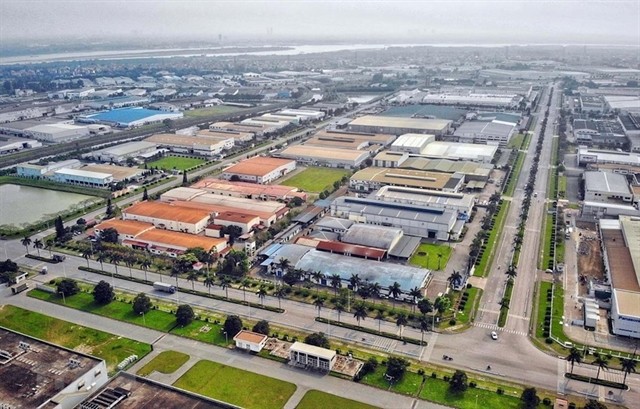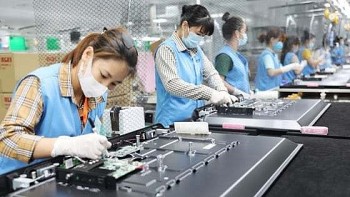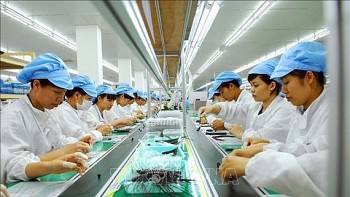Vietnam's Real Estate Growth Fueled by FDI and Infrastructure
| Rising Demand of Vietnam's Logistics Real Estate | |
| Vietnam Is In Top 3 Countries With The Highest Home Ownership Rate |
Vietnam is undergoing significant changes in its industrial and real estate sectors, driven by robust foreign direct investment (FDI) inflows, large-scale infrastructure development, and favorable regulatory policies. This transformation is positioning Vietnam as a leading destination for high-value and sustainable investment.
 |
| An industrial zone in Viet Nam. The country described as an ideal location for industrial real estate investment. Photo: VNA |
Prominent high-value sectors such as electronics, automotive components, semiconductors, and green technology dominated the first nine months of 2023, with manufacturing making up 63% of total FDI. Countries like South Korea, Singapore, and Japan are increasingly shifting their focus toward high-tech industries, further diversifying Vietnam’s investment landscape.
To sustain this momentum, Vietnam is prioritizing key infrastructure projects, including the North-South Expressway, Long Thanh International Airport, and the Cai Mep deep-water port in Ba Ria-Vung Tau. These developments enhance direct connectivity with Europe, the Americas, and Southeast Asia, while synchronized infrastructure growth in northern economic zones supports the country's strategic goals.
The digital sector is also gaining traction, with expanded 5G networks and data center projects boosting e-commerce and logistics. This dual investment in physical and digital infrastructure strengthens Vietnam’s role in global supply chains and supports its warehousing and logistics industries.
The real estate market, too, remains a key driver of growth, with experts highlighting industrial real estate as a bright spot. Residential real estate is also emerging as a lucrative segment, offering profit rates of 8–10% annually, compared to just 2–3% in other regional markets. Major players such as CapitaLand, Keppel Land, and Tokyu Corporation have invested billions into urban, residential, and industrial projects across Vietnam.
The 2024 Housing Law, which grants foreigners an additional 50 years of ownership, is expected to further stimulate the premium residential market. Investors from Singapore, Hong Kong, and Taiwan remain optimistic about Vietnam’s growth potential, forecasting a substantial increase in foreign investment by 2026.
John Campbell, Director of Industrial Services at Savills Vietnam, emphasized the country’s strategic advantages, stating that factors like competitive costs, e-commerce growth, and trade openness are essential to Vietnam's long-term success in industrial real estate.
Despite challenges in the global economy and domestic policies, Vietnam’s economy is expected to grow by 6.1% in 2024, with inflation projected at 4.5%. As international tourism and retail sectors recover, Vietnam's diverse investment landscape continues to attract interest from global markets.
In the short term, experts predict stability and growth in industrial and residential real estate, particularly in urbanized areas, reinforcing Vietnam’s position as a regional investment hotspot.
 | FDI into Vietnam Forecast to Grow Strongly Vietnam is still an attractive market for foreign investors, because its economy has recovered and developed in a relatively stable fashion. |
 | IMF Expert: Vietnam Remains Attractive Destination for Foreign Investors Vietnam remains an attractive destination for FDI while the global economy fluctuates and geopolitical instability increases, said an IMF expert. |


